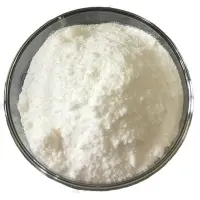Ann Rheum Dis: 2-Year Cost-Benefit Analysis of Different COBRA Enhanced Induction Remissions for Early Rheumatoid Arthritis
-
Last Update: 2020-05-29
-
Source: Internet
-
Author: User
Search more information of high quality chemicals, good prices and reliable suppliers, visit
www.echemi.com
The study was designed to assess the cost-benefit of targeted treatment strategies for patients recently diagnosed with rheumatoid arthritis (RA), comparing methotrexate (MTX) and glucocorticoids (GC) lower steps (COBRA mild group) with (1) high risk scenarios In patients, COBRA was treated in combination with lysine sulfonitin (COBRA Classic Group) or LEFLUnomide (COBRA Pioneer Group), and (2) MTX was used in low-risk patients instead of GCs (Enhanced Ascending Ladder, TSU)calculated incremental cost-utility from a medical point of view in the intended treatment of the intended treatment of the two-year open label practical randomized controlled treatment in the early RA trials (n-379)Proactive collection of medical costs through electronic test recordsUse the EuroQoL-5 dimension mapping algorithm to estimate the quality adjustment life year (QALYs)Use multiple interpolation to process missing data and boot to calculate CIsBio-disease improvement anti-rheumatic drugs at the price of biosimilars tested for robustnessin high-risk patients, the classic group (?k?1.464, 95% CI -0.198 to 3.127) and the Pioneer group (?k?0.636, 95% CI -0.987 to 2.258) cost more than the mild groupThe QALYs of the Classic Group (?0.002, 95% CI -0.086 to 0.082) and Pioneer Group (?0.009, 95% CI -0.102 to 0.084) were slightly worseThis results in gentle groups that are superior to classic and pioneer groupsIn low-risk patients, the mild group cost less than TSU (?k ?.?.617, 95% CI -2.799 to 1.566), and QALYs were higher (?0.141, 95% CI 0.008 to 0.274), indicating that the mild group was superiorThe price of using biosimilars is comparablemTX and GC bridging solutions are less expensive and have comparable health benefits than the use of reinforced lower-step combination strategies or conventional lift ladders 2 years after initial treatment
This article is an English version of an article which is originally in the Chinese language on echemi.com and is provided for information purposes only.
This website makes no representation or warranty of any kind, either expressed or implied, as to the accuracy, completeness ownership or reliability of
the article or any translations thereof. If you have any concerns or complaints relating to the article, please send an email, providing a detailed
description of the concern or complaint, to
service@echemi.com. A staff member will contact you within 5 working days. Once verified, infringing content
will be removed immediately.







